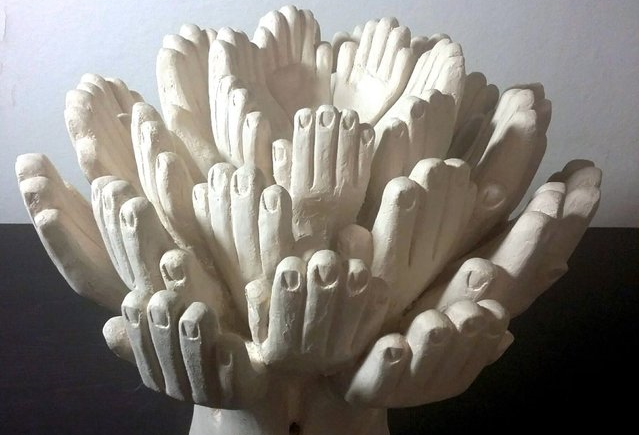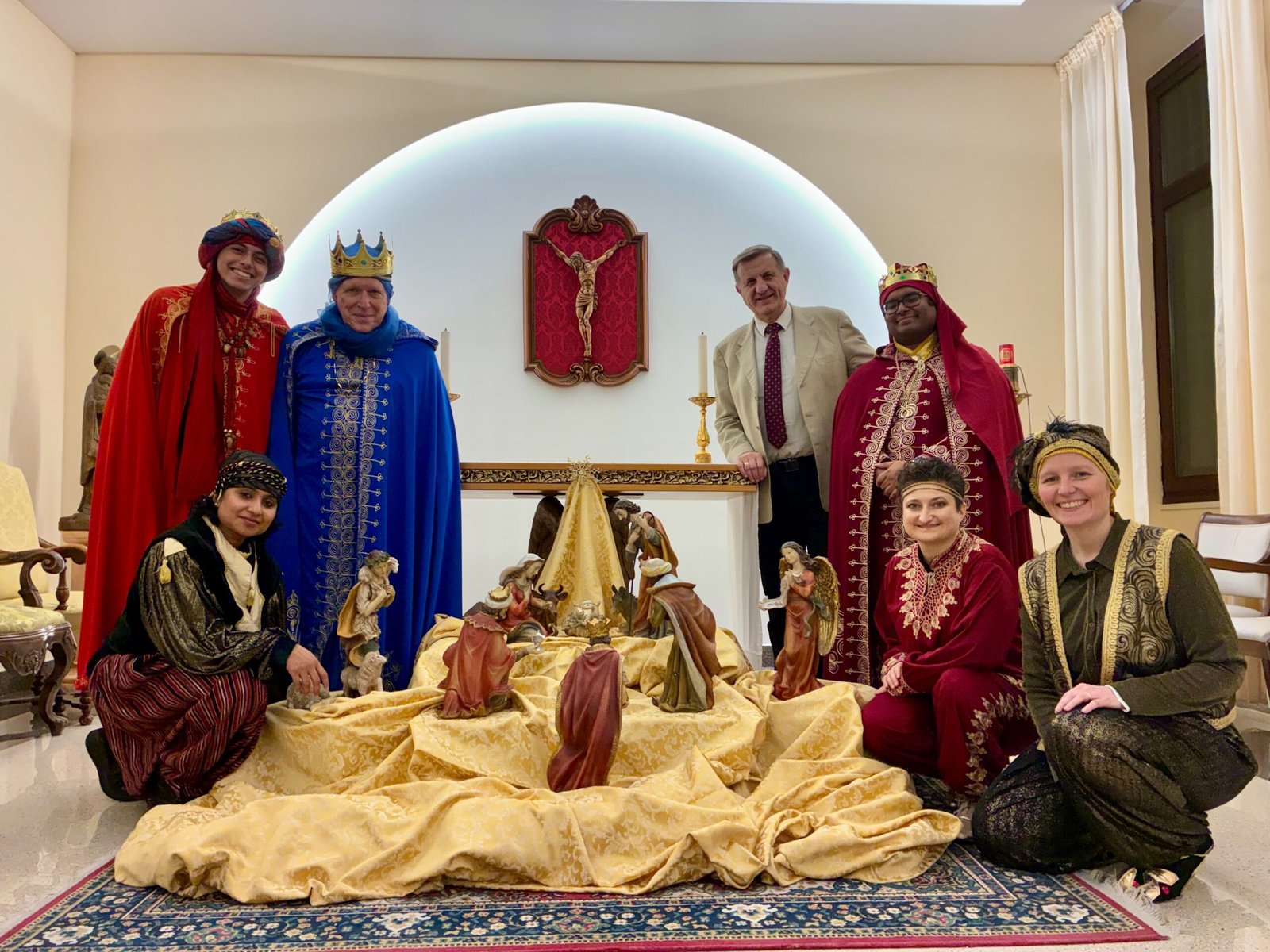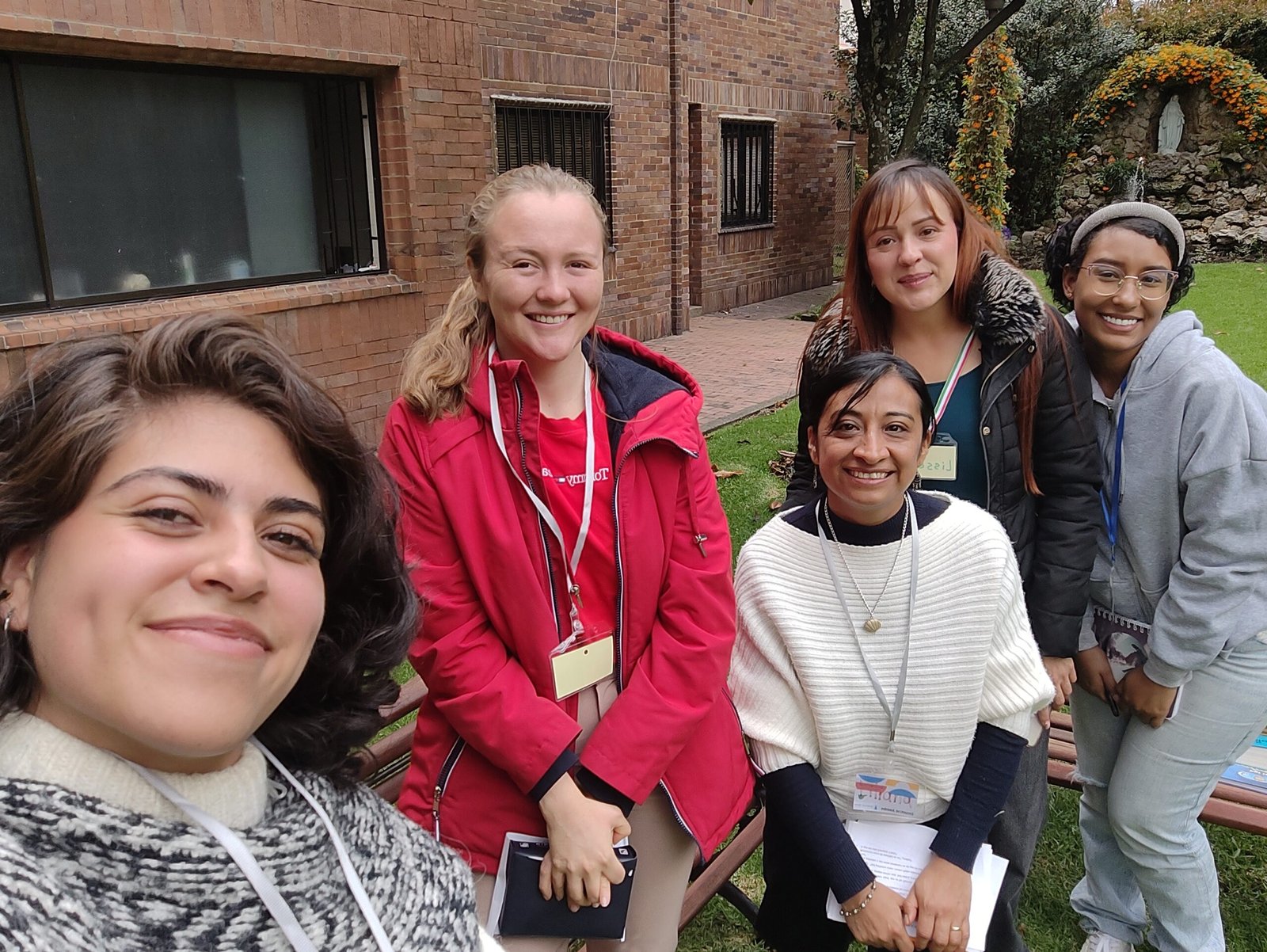
by f. Luis CASASUS, General Superior of the men’s branch of the Idente Missionaries.
New York, October 18, 2020. | XXIX Sunday in Ordinary Time.
Book of Isaiah 45: 1.4-6; First Letter to the Thessalonians 1: 1-5b; Saint Matthew 22: 15-21.
![]() The short answer to this question is… everything. Including Cesar. Just as the image of Caesar stamped on a Roman coin indicates that the coin belongs to Caesar, the image of God stamped on every human being asserts that each one belongs to God.
Man is the only creature on whom the face of God is imprinted. He is sacred and no one can take him as his own.
Bible scholars say that the verb Jesus uses in his answer more precisely means “to return.” Therefore, he is actually commanding us: Give back to Caesar what belongs to Caesar and return to God what is God’s.
But that short answer is not enough. We should reflect on the precise way of giving everything to God.
1. Let’s start with the most important. At the apex of his Passion, Jesus cried: Father, into your hands I commend my spirit. What does it mean to commend, or to surrender the spirit? It certainly does not mean “to die”. It was evident to Christ, to his Father and to everyone else that he was dying.
Christ is expressing his willingness to die and rise, not only to give his life, but to suffer a transformation that was evident to all when he came out of the tomb. This is something that can and does happen in us, even if it is not exactly the same. In St. Paul, when he was converted, people could not recognize the “old” Paul and, of course, he himself confesses that this radical turn in his life is not his work, but essentially God’s, as the First Reading also expresses, declaring that the Lord was Opening doors before Cyrus and leaving the gates unbarred.
It is a form of relationship with God the Father where the key is no longer to eliminate certain imperfections or to fight against temptation, but to truly become instruments of his plans, to be molded according to his will, but being aware that he is using us as instruments to grant his grace. This explains why the Old Testament uses the metaphor of God as a Potter. O Lord, you are our Father; we are the clay, and you are our potter; we are all the work of your hand (Is 64: 8).
On one occasion, Jeremiah, following God’s instructions, went to a potter’s house. He saw the potter at work. There he was, making something at the wheel (Jer 18:3). Jeremiah saw in this that God’s work had a purpose. As the potter, God was not just toying with the clay. He had a purpose in what he was doing.
This gives us food for thought. The dramas and struggles in our lives do not define us. It is God who is the potter, not the circumstances in our lives. God takes any situation or eventuality and use it to shape us and refine us. We should not believe that God sends calamity upon us, but He can use them to make us more like Christ. No matter how flawed or spoiled we think we are, in the potter’s hands, we too can be made new.
The clay itself plays an active role in what is created. God has created us in such a way that we have free will and freedom of choice. We share, therefore, in how we are shaped. So the level to which we, as clay, are harsh or smooth, malleable or stiff, refined or flecked with imperfections, contributes to how we will turn out as instruments for the salvation of the world.
In the Second Reading, St. Paul gratefully recognizes that the Gospel the Thessalonians have received is not due only to the human preaching of Paul, Silvanus and Timothy, but also ‘in power and in the Holy Spirit.’ St. Paul is truly conscious of the effect of God’s power through human instruments. In the First Reading we see how Cyrus the Great, a Persian king, is called ‘God’s anointed one’ though he did not know the God of Israel, and is made His instrument in freeing the people of Israel from their Babylonian captors and sending them back to Jerusalem to rebuild their temple and city.
2. God expects us to give him our spiritual life, our moral difficulties and our natural limitations. Our ascetical life has an essential characteristic: it is not a question of fighting against anything, but of sharing everything with Christ. The difference is very important, because there are things that surpass us, passions that overflow us and habits that dominate us, so the true effort is to succeed in putting in his hands our thoughts, desires, passions, actions and aspirations. That is also to give to God what is God’s.
Many of us sincerely give to God some things, some of our time, some of our talents. But the problem is that we are often ambiguous and forget to share certain issues and difficulties. Maybe because we feel safe or maybe because we do NOT fully trust his help. Yes; in this way we send wrong signals to God by keeping some aspects of our life to ourselves, not necessarily negative from a moral point of view.
In that way it happens to us as it did to two friends going out for a walk. All of a sudden they are confronted by a huge dog. The individuals are hesitant to pass by fearful of what the dog might do. Go ahead, one said to the other. See there, the dog is barking, but is also wagging his tail. I think it is safe for us to pass by. To which the other responds: The problem is I don’t know which end to believe.
When Jesus tells the story of a man who knocks on a friend’s door at midnight to ask for bread, he is giving us an example of someone who puts more than good intentions into his prayer. He puts all his intention. To do this, he abandons his home, his habits and perhaps his children, who would be sleeping, just like those of his neighbor. He does not worry about the time, what his friend may think, the danger of the night or his plans for the next day. The message he is sending is that he needs bread above all else and the parable tells us that that prayer is heard by God.
Is this our Evangelical Spirit or do we make it “compatible” with other intentions, such as seeking affection, admiration and acceptance of our opinions? When we do so, we go against our true nature. These are the words of our Founding Father:
There is no passion in this life, no temptation of the devil, that can take away the holy and immaculate intention that we possess. Life can take away many other things, including strength, but St. Paul has already taught us that there is no power in heaven or on earth or in hell or anywhere, that can take away our being, the living incarnation of divine intention, that intention with which God conceives all things (December 8, 1983).
Since even Caesar belongs God, so what is Caesar’s is really God’s. Everything we have is God’s; everything we are is meant for Him. Not only our moral or spiritual life. If you have a job, that’s a God’s gift. A retirement income? His gift. You say, wait a minute, I work hard for that paycheck, or worked hard for that pension. Who gave you the talents, and the energy, the breaks, the education, the health to do that job? God’s gift.
Only when we trust Him and have confidence in Him can we accept what He wants to give us as good. When we choose ourselves, most of the time, because of our ignorance, we choose what is detrimental for us. In reality, this happens to us in our everyday human relationships.
Our ego tells us we need to be constantly talking about our self, offering unsolicited opinions, gossiping and complaining without stopping to listen to others. An unchecked ego tells us we always have to be right and that it is a weakness to admit when we are wrong. And an unbridled ego tells us we need to continually tell others about our accomplishments and achievements without owning up to our failures. In other words, an unbridled ego is always the center of attention. To be honest, all of us, to some degree or another, suffer from an unchecked ego.
This is why on many occasions we find it difficult to put a part of our life in the hands of another human being, even if we believe it is convenient or even necessary. If you are a student, you may be smarter than your teacher. If you are a patient, you certainly know your pain better than the doctor. If you are a basketball player, you will probably shoot better than your coach. But there is something that the student, the patient, and the athlete have to recognize: the teacher, the doctor, and the coach probably have better vision, a deeper insight.
The story is told of a great tightrope walker by the name of Blondin who stretched a long steel cable across Niagara Falls. During high winds and without a safety net, he walked, ran, and even danced across the tightrope to the amazement and delight of the large crowd of people who watched.
Once he took a wheelbarrow full of bricks and amazed the crowd by pushing it effortlessly across the cable, from one side of the falls to the other. Blondin then turned to the crowd and asked: Now, how many of you believe that I could push a man across the wire in the wheelbarrow? The vote was unanimous. Everyone cheered and held their hands high. They all believed he could do it! Then, asked Blondin, would one of you please volunteer to be that man? As quickly as the hands went up, they went back down. Not a single person would volunteer to ride in the wheelbarrow and to trust his life to Blondin.
Many times we say to Jesus, “Yes, I believe!” If you and I are among those who say that, are we willing to demonstrate our belief by trusting our life to Him? That is what it means to believe. Faith is not just an intellectual exercise. It involves total commitment and give him, put in his hands really everything. He really wants to fill all the spaces of our life with his voice, his love, his righteousness.
At times, this is why we experience abhorrence of God in our spiritual life: we recognize his desire to intervene in all dimensions of our lives, in our thoughts, desires, emotions, events, … especially in each and every one of our moments with others. It is a very valuable purification, because it forces us to choose between a comfortable spiritual life or allowing God to model us in his image and likeness.
A final point regarding today’s Gospel scene. We do not realize it, but our prayer can sometimes resemble the attitude of the Pharisees. They ask Christ about taxes and Jesus asks them to show him a coin. They show it to him. That means two things. First, that Jesus didn’t have one of those coins…and they did. Therefore, they had no problem using it, despite its “profane” inscription proclaiming Caesar as God. Second, that their question to Jesus is full of verbal praise and respect, but their intention is completely different.
One of the most painful traits we human beings detect (only in others!) is the lack of unity between words and deeds. And that has a name: hypocrisy.
The short answer to this question is… everything. Including Cesar. Just as the image of Caesar stamped on a Roman coin indicates that the coin belongs to Caesar, the image of God stamped on every human being asserts that each one belongs to God.
Man is the only creature on whom the face of God is imprinted. He is sacred and no one can take him as his own.
Bible scholars say that the verb Jesus uses in his answer more precisely means “to return.” Therefore, he is actually commanding us: Give back to Caesar what belongs to Caesar and return to God what is God’s.
But that short answer is not enough. We should reflect on the precise way of giving everything to God.
1. Let’s start with the most important. At the apex of his Passion, Jesus cried: Father, into your hands I commend my spirit. What does it mean to commend, or to surrender the spirit? It certainly does not mean “to die”. It was evident to Christ, to his Father and to everyone else that he was dying.
Christ is expressing his willingness to die and rise, not only to give his life, but to suffer a transformation that was evident to all when he came out of the tomb. This is something that can and does happen in us, even if it is not exactly the same. In St. Paul, when he was converted, people could not recognize the “old” Paul and, of course, he himself confesses that this radical turn in his life is not his work, but essentially God’s, as the First Reading also expresses, declaring that the Lord was Opening doors before Cyrus and leaving the gates unbarred.
It is a form of relationship with God the Father where the key is no longer to eliminate certain imperfections or to fight against temptation, but to truly become instruments of his plans, to be molded according to his will, but being aware that he is using us as instruments to grant his grace. This explains why the Old Testament uses the metaphor of God as a Potter. O Lord, you are our Father; we are the clay, and you are our potter; we are all the work of your hand (Is 64: 8).
On one occasion, Jeremiah, following God’s instructions, went to a potter’s house. He saw the potter at work. There he was, making something at the wheel (Jer 18:3). Jeremiah saw in this that God’s work had a purpose. As the potter, God was not just toying with the clay. He had a purpose in what he was doing.
This gives us food for thought. The dramas and struggles in our lives do not define us. It is God who is the potter, not the circumstances in our lives. God takes any situation or eventuality and use it to shape us and refine us. We should not believe that God sends calamity upon us, but He can use them to make us more like Christ. No matter how flawed or spoiled we think we are, in the potter’s hands, we too can be made new.
The clay itself plays an active role in what is created. God has created us in such a way that we have free will and freedom of choice. We share, therefore, in how we are shaped. So the level to which we, as clay, are harsh or smooth, malleable or stiff, refined or flecked with imperfections, contributes to how we will turn out as instruments for the salvation of the world.
In the Second Reading, St. Paul gratefully recognizes that the Gospel the Thessalonians have received is not due only to the human preaching of Paul, Silvanus and Timothy, but also ‘in power and in the Holy Spirit.’ St. Paul is truly conscious of the effect of God’s power through human instruments. In the First Reading we see how Cyrus the Great, a Persian king, is called ‘God’s anointed one’ though he did not know the God of Israel, and is made His instrument in freeing the people of Israel from their Babylonian captors and sending them back to Jerusalem to rebuild their temple and city.
2. God expects us to give him our spiritual life, our moral difficulties and our natural limitations. Our ascetical life has an essential characteristic: it is not a question of fighting against anything, but of sharing everything with Christ. The difference is very important, because there are things that surpass us, passions that overflow us and habits that dominate us, so the true effort is to succeed in putting in his hands our thoughts, desires, passions, actions and aspirations. That is also to give to God what is God’s.
Many of us sincerely give to God some things, some of our time, some of our talents. But the problem is that we are often ambiguous and forget to share certain issues and difficulties. Maybe because we feel safe or maybe because we do NOT fully trust his help. Yes; in this way we send wrong signals to God by keeping some aspects of our life to ourselves, not necessarily negative from a moral point of view.
In that way it happens to us as it did to two friends going out for a walk. All of a sudden they are confronted by a huge dog. The individuals are hesitant to pass by fearful of what the dog might do. Go ahead, one said to the other. See there, the dog is barking, but is also wagging his tail. I think it is safe for us to pass by. To which the other responds: The problem is I don’t know which end to believe.
When Jesus tells the story of a man who knocks on a friend’s door at midnight to ask for bread, he is giving us an example of someone who puts more than good intentions into his prayer. He puts all his intention. To do this, he abandons his home, his habits and perhaps his children, who would be sleeping, just like those of his neighbor. He does not worry about the time, what his friend may think, the danger of the night or his plans for the next day. The message he is sending is that he needs bread above all else and the parable tells us that that prayer is heard by God.
Is this our Evangelical Spirit or do we make it “compatible” with other intentions, such as seeking affection, admiration and acceptance of our opinions? When we do so, we go against our true nature. These are the words of our Founding Father:
There is no passion in this life, no temptation of the devil, that can take away the holy and immaculate intention that we possess. Life can take away many other things, including strength, but St. Paul has already taught us that there is no power in heaven or on earth or in hell or anywhere, that can take away our being, the living incarnation of divine intention, that intention with which God conceives all things (December 8, 1983).
Since even Caesar belongs God, so what is Caesar’s is really God’s. Everything we have is God’s; everything we are is meant for Him. Not only our moral or spiritual life. If you have a job, that’s a God’s gift. A retirement income? His gift. You say, wait a minute, I work hard for that paycheck, or worked hard for that pension. Who gave you the talents, and the energy, the breaks, the education, the health to do that job? God’s gift.
Only when we trust Him and have confidence in Him can we accept what He wants to give us as good. When we choose ourselves, most of the time, because of our ignorance, we choose what is detrimental for us. In reality, this happens to us in our everyday human relationships.
Our ego tells us we need to be constantly talking about our self, offering unsolicited opinions, gossiping and complaining without stopping to listen to others. An unchecked ego tells us we always have to be right and that it is a weakness to admit when we are wrong. And an unbridled ego tells us we need to continually tell others about our accomplishments and achievements without owning up to our failures. In other words, an unbridled ego is always the center of attention. To be honest, all of us, to some degree or another, suffer from an unchecked ego.
This is why on many occasions we find it difficult to put a part of our life in the hands of another human being, even if we believe it is convenient or even necessary. If you are a student, you may be smarter than your teacher. If you are a patient, you certainly know your pain better than the doctor. If you are a basketball player, you will probably shoot better than your coach. But there is something that the student, the patient, and the athlete have to recognize: the teacher, the doctor, and the coach probably have better vision, a deeper insight.
The story is told of a great tightrope walker by the name of Blondin who stretched a long steel cable across Niagara Falls. During high winds and without a safety net, he walked, ran, and even danced across the tightrope to the amazement and delight of the large crowd of people who watched.
Once he took a wheelbarrow full of bricks and amazed the crowd by pushing it effortlessly across the cable, from one side of the falls to the other. Blondin then turned to the crowd and asked: Now, how many of you believe that I could push a man across the wire in the wheelbarrow? The vote was unanimous. Everyone cheered and held their hands high. They all believed he could do it! Then, asked Blondin, would one of you please volunteer to be that man? As quickly as the hands went up, they went back down. Not a single person would volunteer to ride in the wheelbarrow and to trust his life to Blondin.
Many times we say to Jesus, “Yes, I believe!” If you and I are among those who say that, are we willing to demonstrate our belief by trusting our life to Him? That is what it means to believe. Faith is not just an intellectual exercise. It involves total commitment and give him, put in his hands really everything. He really wants to fill all the spaces of our life with his voice, his love, his righteousness.
At times, this is why we experience abhorrence of God in our spiritual life: we recognize his desire to intervene in all dimensions of our lives, in our thoughts, desires, emotions, events, … especially in each and every one of our moments with others. It is a very valuable purification, because it forces us to choose between a comfortable spiritual life or allowing God to model us in his image and likeness.
A final point regarding today’s Gospel scene. We do not realize it, but our prayer can sometimes resemble the attitude of the Pharisees. They ask Christ about taxes and Jesus asks them to show him a coin. They show it to him. That means two things. First, that Jesus didn’t have one of those coins…and they did. Therefore, they had no problem using it, despite its “profane” inscription proclaiming Caesar as God. Second, that their question to Jesus is full of verbal praise and respect, but their intention is completely different.
One of the most painful traits we human beings detect (only in others!) is the lack of unity between words and deeds. And that has a name: hypocrisy.











